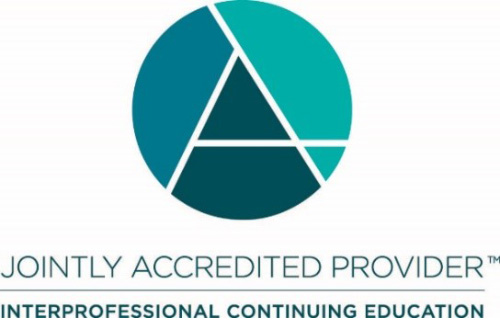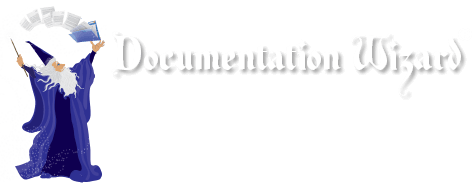VIDEO COURSE NAME
Misery or Mastery®
Essential Documentation for Psychotherapists
A series of 6 videos to which you have unlimited online access for one year.
The series comes with:
- Workshop Manual / Powerpoint slide deck to make comments and use as reference while writing your notes.
- Recording of each video to listen in the car, at the gym, or even while washing the dishes.
- Practice treatment and practice progress note forms to be used during the video training.
- Complete agenda detailing entire workshop.
COST: $297
All sales are final.
Add TRAINING CEs to your Video Workshop ( learn more )
INSTRUCTOR

Beth Rontal, LICSW, is a nationally recognized and engaging speaker on clinical documentation for those working in agency behavioral health settings, as well as private practice clinicians. Her Documentation Wizard ™ training programs empower clinicians, reduce anxiety about documentation, and further professional integrity. She has created a formula that simplifies the documentation process by systematically linking effective documentation with quality care. This helps to pass audits and protect income. Beth mastered her teaching skills with thousands of hours supervising and training psychotherapists. She writes blogs on clinical documentation, co-chairs the NASW Private Practice Shared Interest Group, and has a private practice in Brookline, MA, specializing in working with people who struggle with emotional eating.
YOU WILL LEARN
- Recognize obstacles to writing clear and concise documentation.
- Translate clinical skill and intuition into the language required by insurance companies.
- Apply the Golden Thread to justify medical necessity.
- Document what really happens in a therapy session without violating confidentiality.
- Analyze clinical, legal, and ethical red flags of documentation and how to avoid them.
VIDEO SCHEDULE
Unlimited access to a series of 6 videos for one year.
MODULE 1: YOU'RE NOT A BAD THERAPIST. YOU'RE JUST NOT TRAINED (30 minutes)
- The 3 causes of “documentation anxiety”
- How to stop documentation anxiety from becoming “documentation trauma”
- What our codes of ethics say about documentation
- Insurance and private pay therapists – same documentation standards?
- Documentation as protection of income and agent of professional integrity
- Anxiety-reducing answers to common questions.
- Documentation as a contribution to good clinical work
MODULE 2: DEFINITIONS AND CONTEXT (15 minutes)
- Documentation through the lens of medical necessity
- The "Golden Thread” and its role in justifying medical necessity
- Conceptualizing therapy as a single-case experiment to guide treatment
- Using diagnosis as the hypothesis and progress documentation as the experimental outcome
- Establishing the connection between the diagnosis and treatment
- Functions of documentation
- The complexities and clinical challenges of writing for different audiences
- The significance of clinical intuition in the documentation process
MODULE 3: THE TREATMENT PLAN (3 hours 15 minutes)
- Administrative and clinical requirements
- Writing a treatment plan that justifies medical necessity
- How the treatment plan describes the experimental process
- The Treatment Plan Formula
- Implementing the Golden Thread with case examples
- Creating a clear connection between all elements of the plan
- How to operationalize the treatment plan
- Why using behavioral language makes sense clinically
- Including clients in the treatment planning process.
- Questions to ask
- The challenges of and solutions for creating realistic and measurable goals
- The “rule of 3”
- The value of documenting barriers to treatment
- Protecting client and therapist with a risk assessment
- The debate over documenting medications and best practice
- Evaluating and documenting progress
- Deadline for writing treatment plans
- Shedding light on treatment plan frequency
- How to avoid making yourself crazy writing your treatment plans
Implementing the golden thread with a Treatment Plan Practice Session
MODULE 4: THE PROGRESS NOTE (1 hour 30 minutes)
- Administrative and clinical requirements of the progress note, including telehealth documentation
- The role of the progress note in advancing the golden thread
- Documenting each session in the experimental process and how it relates to the treatment plan
- The controversy between using checkboxes and narratives
- Guidelines for determining when to be vague and when to be specific
- Balancing client confidentiality with clarity about what happened during the session
- The 6 different assessments in the progress note
- The role of the risk assessment; not just for suicide, homicide, and violence
- The importance of documenting sleep issues
- Writing interventions without using psychobabble
- The continuing debate over documenting medications and best practice
- How to document even the slightest progress
- Justifying “extended-time” and multiple sessions of the week
- Debunking the myth of the 24-hour completion rule
Implementing the golden thread with a Progress Note practice session
MODULE 5: THE CLINICAL DOCUMENTATION NO ONE TALKS ABOUT (45 minutes)
- The Collateral Contact Note
- Administrative and clinical requirements
- Clinical and legal imperatives of writing the collateral contact note
- Maintaining the golden thread and justifying medical necessity with case examples
- The Discharge Summary
- Administrative and clinical requirements
- How the discharge summary completes the Golden Thread
- Legal and ethical considerations of a discharge summary
- When to write the discharge summary
- The role of the termination letter
- The Intake Summary
- Administrative, legal, and clinical requirements
- How the intake summary initiates the golden thread and lays the groundwork for justifying medical necessity.
- Establishing the connection between the diagnosis and treatment
- What to include in a trauma informed intake
- Deadline for writing the intake summary
MODULE 6: 37 TRIGGERS TO AUDITS, CLAW BACKS, AND ETHICAL ISSUES AND HOW TO AVOID THEM (45 minutes)
- What triggers an audit
- How to fail an audit
- Honest mistakes that can be seen as insurance fraud
- Ethical challenges in documentation and how to handle them
- The role of Informed Consents in clinical documentation
- Basic Do’s and Don’ts
- Paper notes or EHR?
- What’s next
- Avoiding documentation fatigue and making yourself crazy
- To catch up or move on?
- Assessing your needs
- Making your plan
- Additional resources
WHAT PEOPLE ARE SAYING
"I am delighted that I no longer feel that being an intuitive, attuned therapist trained in the Internal Family Systems Model is a barrier for accomplishing this goal! This was in large part because of Beth’s ability to teach documentation skills with confidence, curiosity, compassion and a LOT of clarity! Thank you, Beth!"
- Debbie Armstrong, LICSW
"I just wanted to send a special thank you for sharing your knowledge with the field. Your training is deeply informed and fundamentally revised how I see and conduct my practice. I can tell that the integration and application of the knowledge has only just begun. The content was the most transformative I had experienced since grad school. I cannot thank you enough for the salient, thorough, and impactful content you offer and for your style of delivery. I am grateful to be in the field alongside you. May this brighten your day."
- A. Duffey, LCSW
I was really impressed with your training and your forms are fabulous. They are most helpful because you present best practice from both clinicians’ and auditors’ perspective."
-A.C., LCSW
"I want to thank you for a Sunday workshop that I was dreading. I thought it was going to be dry and boring with me feeling like I would want to leave asap. Instead, your presentation and warmth made the experience enjoyable. Hard to believe but true! I will highly recommend the workshop."
- Caryn Mushlin, LICSW
"Profoundly helpful and necessary for all clinicians I feel - No matter how experienced we are."
-Deb Marcucci, LCSW, LISW-S, EMDR clinician
I am so glad I took your course! You are such an excellent presenter as evidence by being clear, organized, genuine, friendly, balancing ongoing questions, and thoughtful. After taking your course, I finally feel that I will be writing notes, treatment plans, etc. properly, especially since I soon hope to be accepting Medicare. It is a relief to know that if I write notes as you recommend, I won’t have to panic (as much!) if I am ever audited. Thanks again for a great 6 hours of training. I am already telling my colleagues about your course and website.
- Bonnie Deroo, LMFT
Love, love, love what I learned about documentation! It has been very helpful and set me up for a successful beginning to my counseling career! Thank you!!
- Diane B.
RESEARCH
There are a variety of reputable websites regarding best practice standards for documenting medical necessity. A few select sites include: Association for Behavioral Health Care; Massachusetts Standardized Documentation Project http://bit.ly/2NdzDET; Medical Documentation for Behavioral Health Practitioners 2015 at https://go.cms.gov/2EkA9OV; and a specific social work resource book Sidell, Nancy L. Social Work Documentation; a Guide to Strengthening Your Case Recording, NASW Press, Washington, DC, 2011. & revised edition, 2015 http://bit.ly/2Eh5yBt
TARGET AUDIENCE
social workers, psychologists, marriage and family therapists, mental health counselors, creative arts therapists, addictions professionals, and other interested human service staff.
CONTENT LEVEL
Beginning, Intermediate, Advanced
TRAINING CEs
 In support of improving patient care, this activity has been planned and implemented by Amedco LLC and Documentation Wizard (DD). Amedco LLC is jointly accredited by the Accreditation Council for Continuing Medical Education (ACCME), the Accreditation Council for Pharmacy Education (ACPE), and the American Nurses Credentialing Center (ANCC), to provide continuing education for the healthcare team.
In support of improving patient care, this activity has been planned and implemented by Amedco LLC and Documentation Wizard (DD). Amedco LLC is jointly accredited by the Accreditation Council for Continuing Medical Education (ACCME), the Accreditation Council for Pharmacy Education (ACPE), and the American Nurses Credentialing Center (ANCC), to provide continuing education for the healthcare team.
Participants must attend 100% of the program to earn 6 CEs approved for eligible professions. Please click here for accreditation by profession and state. It is up to each professional to determine if they are eligible for CEs.
PLEASE NOTE:
IT IS YOUR RESPONSIBILITY TO MAKE SURE OUR CE APPROVALS MEET THE QUALIFICATIONS OF YOUR STATE LICENSING BOARD.
ACCOMMODATIONS FOR HARD OF HEARING
This video is closed-captioned.
This pricing is for single use only.
Group practice and site licenses are available. Please inquire. Licenses purchased here are SINGLE USER ONLY. Please do not purchase multiple copies using the same email.
1 This Demo Video is a short mock therapy session where the therapist and client co-create a treatment plan.
2 Two Practice Forms, to practice writing a treatment plan and a session note based on the demo. These are training forms only. The Clinical Forms are not included in the purchase of the Video Package
3 Three different packages that prompt you to follow the Golden Thread, cross your T’s, and dot your I’s. Includes a 15% discount on the Forms packages for up to 1 month after your purchase. This gives you plenty of time to watch the video and determine your needs. There are no additional bonuses outside of the 15% discount on the Forms pages for 1 month. You will receive an email after purchases detailing how to use your 15% discount.
